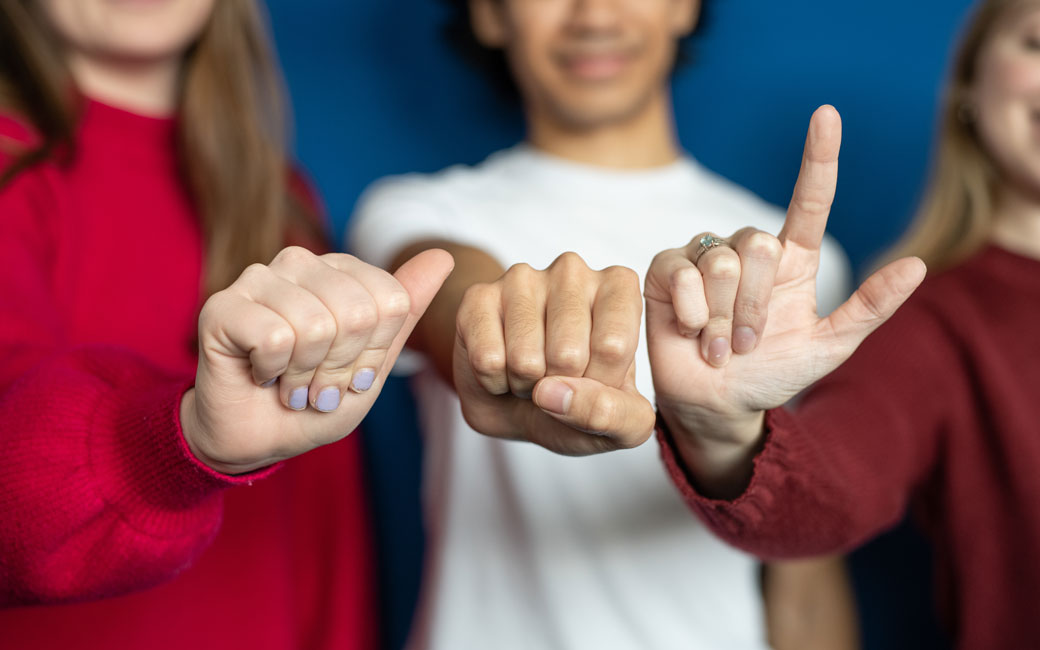Language for all
Towson University’s American Sign Language Club raises awareness and creates a community for ASL and Deaf culture.
By Briana Richert '20 on February 12, 2020

In America, for every 20 people there is one person with hearing loss, and there are millions of Deaf individuals who embrace American Sign Language (ASL) as a major part of their identity.
Towson University’s ASL Club allows free instruction in ASL, the third-most popular language to learn in the U.S.
Highlighting the use of ASL, TU’s ASL Club brings together a community of both fluent and beginner ASL communicators, to build a network and promote ASL and Deaf culture. The ASL Club also shines a light on this cultural presence and provides a space for those interested in the culture.
“It’s important to raise awareness about Deaf culture and teach the importance and beauty of American Sign Language to others,” says club president, Camryn Moynihan. “This club gives individuals the ability to learn ASL in a fun, stress-free and accepting environment.”
When the club meets, Moynihan says the only form of communication they use is sign language, as way to help the group practice their skills.
“We believe the best way to effectively learn a language is to fully immerse yourself in it,” Moynihan says.
Whiteboards are used to teach vocabulary and grammar unfamiliar to beginner ASL learners. This method promotes an in-depth study of the language and shows respect to Deaf members or club associates.
The ASL Club also hosts events such as Chipotle fundraisers, paint nights, spa day sessions with former ASL officers, weekly silent meals and annual ASL Fest, where members of the Deaf community are invited to promote their businesses, interact with other members of the ASL community and learn more about Deaf culture. The festival is the club’s largest event and is set for April.
ASL Club meetings and events are always open to the public. Anyone interested in ASL and Deaf culture is more than welcome to participate and learn along with the community. New members and participants will find a welcoming environment and a supportive group, willing to work with and teach those who are just starting out.
“It’s great for improving your ASL skill level and gaining friends with similar interests as you,” Moynihan says. “In some cases, people even pick up minors or change their majors because they find that this interests them more.”
For more information, join the ASL Club on Involved@TU, or follow them on Facebook, Instagram or Twitter.
This story is one of several related to President Kim Schatzel’s priorities for Towson University: Diverse and Inclusive Campus.